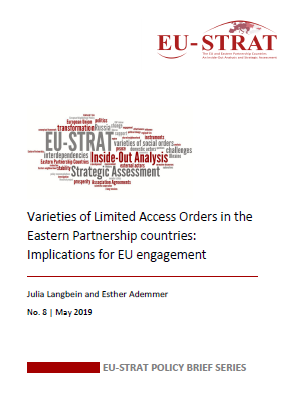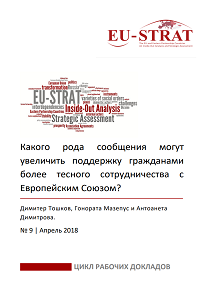Some of our research from the EU-STRAT project will be published in the journal East European Politics very soon! Most of the articles are already available online.
On this occasion, East European Politics is organizing an online public event- webinar – to present and discuss the themes of the special issue. Below is some additional information and the preliminary program.
Attendance is free, and you can register via this link. See you on March 12!
About this Event
The upcoming Special Issue of East European Politics (to be published in March) investigates the interplay between domestic socio-political orders and changing external influences of the EU, Russia, Turkey and other external actors in Eastern Europe. In this online webinar, contributors to the special issue, together with guest editors Antoaneta Dimitrova (Leiden University), Tanja Börzel (Free University Berlin) and Dimiter Toshkov (Leiden University) reflect on their findings in the light of continuing turmoil in Eastern Europe. The discussion is followed by an open Q&A.
Programme:
15:00-15:30 (GMT)
Introducing the key themes
Antoaneta Dimitrova: Analyzing the Eastern neighbourhood with the help of theory: what can we add to North, Wallis and Weingast’s framework for understanding open and limited social orders?
Dimiter Toshkov: Political dynamics in the region and our findings on the interactions of domestic and external actors: the paradox of external actors’ weakness
Tanja A. Börzel: The issue’s findings in the light of the shift in the EU’s approach to the neighbourhood from democratization to resilience
15:30-16:30 (GMT)
Understanding a turbulent region: Some key findings and current developments
Tatsiana Chulitskaya/Inna Ramasheuskaya/ Natallia Rabava: State capacity in Belarus: looking on our findings in the light of pro-democracy protests
Honorata Mazepus: Actors that link to Russia and the EU: contextualizing the findings
Julia Langbein: The effects of trade and the association agreement
Ole Frahm: The rising power of Turkey and the findings on the role of business entrepreneurs
Questions and discussion

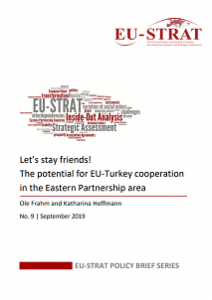
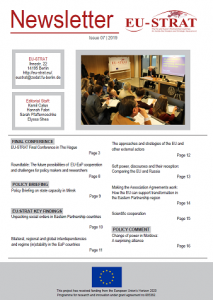
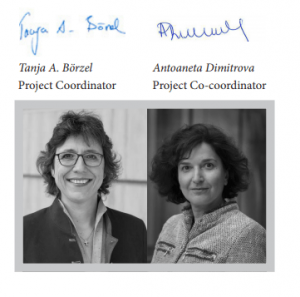
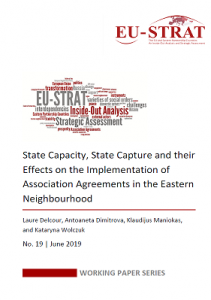
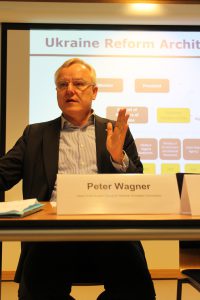
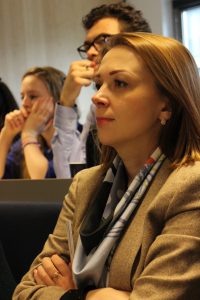 Wagner concluded that reforms in Ukraine might not yet have reached the point of irreversibility – but with sufficient time, continued political will from Ukraine and international support, he believes things will work out. Coordination with international partners, such as the European Bank for Reconstruction and Development (EBRD), International Monetary Fund (IMF) and World Bank is crucial in this process. However, when it comes to public administration reform, the SGUA is very much leading the way and the EU is the most important partner of Ukraine in reform. Peter Wagner proposed that finding innovative approaches where possible in applying some of the existing reform instruments and attracting the best national talents is the key to success for achieving the ambitious objective of substantial and comprehensive change in Ukraine. He further concluded that the EU is ready to stand by its partner countries in their ongoing reform efforts, noting that sustained and effective reform progress is key to the continued success of the EaP.
Wagner concluded that reforms in Ukraine might not yet have reached the point of irreversibility – but with sufficient time, continued political will from Ukraine and international support, he believes things will work out. Coordination with international partners, such as the European Bank for Reconstruction and Development (EBRD), International Monetary Fund (IMF) and World Bank is crucial in this process. However, when it comes to public administration reform, the SGUA is very much leading the way and the EU is the most important partner of Ukraine in reform. Peter Wagner proposed that finding innovative approaches where possible in applying some of the existing reform instruments and attracting the best national talents is the key to success for achieving the ambitious objective of substantial and comprehensive change in Ukraine. He further concluded that the EU is ready to stand by its partner countries in their ongoing reform efforts, noting that sustained and effective reform progress is key to the continued success of the EaP.